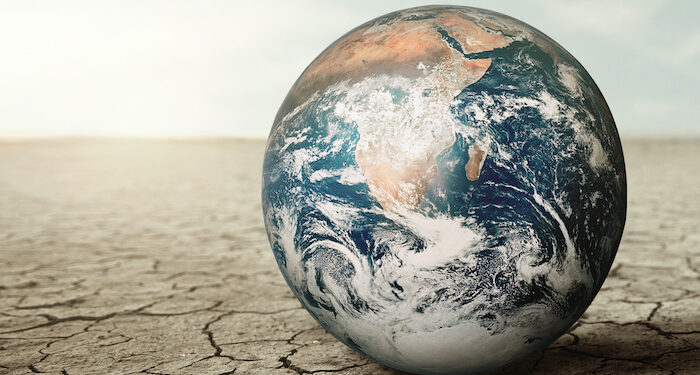I recently saw a map of Cape Town illustrating the projected impact of a 3°C global temperature increase. It was part of a global warming mapping exercise, and the changes were staggering.
Beach Road would truly live up to its name, the Waterfront would become just water, and some of the city’s popular trail runs would transform into prime kite surfing spots. If Cape Town thinks it has a housing shortage because of Airbnb, wait until rising sea levels start reshaping the property market.
This year’s theme for World Radio Day 2025—Radio and Climate Change—could not be timelier. We are no longer talking about climate change as a distant issue; we are living in it, both literally and figuratively.
The United States has withdrawn from the Paris Agreement, the global framework designed to limit greenhouse gas emissions and keep temperature rise below 1.5°C. Wildfires have devastated California, severe storms have left thousands of Irish homes without electricity, and the African penguin has been added to the critically endangered list.
January 2025 was reported to be the warmest on record—and we’re only in February! Climate change is no longer a discussion for scientists and policymakers, we need to start talking about the weather!
Radio as a catalyst for climate conversation and action
Africa, a continent rich in natural resources and agricultural potential, has a direct stake in the health of the planet. Climate change is not a problem that can be managed at arm’s length, nor is it an issue for “them” to solve—it affects us all.
International agreements alone won’t fix it; change must be driven by communities, individuals, and local action. Radio is the perfect medium to foster common understanding, debunk misinformation, provide accurate information, and lead the conversation.
In the past three years, I have witnessed firsthand how radio stations serve as conduits between communities and their changing environments.
In rural Liberia, radio has amplified the voices of farmers affected by the shifting rainfall patterns disrupting rubber plantations.
In Zambia’s Copperbelt, mining communities have turned to radio to voice concerns over deforestation and pollution. Near Lake Kariba in Zimbabwe, where drought has crippled fishing and farming, radio has been instrumental in driving awareness and resilience strategies.
Because radio is a literal representation of the sound a community makes, it acts as both a barometer of public sentiment and a thermometer of discourse. When climate-related crises hit, radio is often the first to register the change—and the first to inform, educate, and mobilise action.
Community radio: The frontline of climate awareness
Community radio has always played a dual role: activist and educator. It makes sense, then, that these stations are in-tune with the environmental challenges their audiences face daily. In many cases, the local radio station is the only institution people trust and feel connected to.
Whether it’s warning farmers about incoming floods, hosting discussions with climate experts, or holding local officials accountable for environmental mismanagement, radio fosters participation and engagement at grassroots level.
Radio thrives when it connects people to content that is valuable to their daily lives. Its participatory nature makes it a crucial tool in addressing democracy, public health, climate action, and environmental awareness.
The role of public and commercial radio in climate advocacy
While community radio is intrinsically embedded in local realities, public and commercial radio also have a role in the climate conversation.
These larger stations may not always be as immediately connected to the daily struggles of small communities, but they have the reach and influence to amplify critical climate issues to national and global audiences.
When multinational corporations exploit small communities—stripping natural resources, polluting water sources, or violating indigenous land rights—radio is often the only medium willing to expose these injustices. If these stories aren’t told, climate justice remains an elusive concept.
Public radio can extend the discourse through documentaries, dramas and debates held on their national platforms.
Climate change is not just about rising temperatures or unpredictable weather patterns. It’s about people, livelihoods, and survival. And in that conversation, radio remains one of the most powerful and trusted voices.
Developing radio’s role in climate related conversations
As climate-related disasters become more frequent, radio stations must strengthen their role in disaster preparedness and emergency response. In many rural areas, radio is the only medium that can provide real-time alerts about high-speed winds, floods, and wildfires.
Programmers need to look at the environment around them and ask, “what can go wrong here and how do we serve the audience when this happens?”
Climate literacy must become a more common programming tool. While many people understand the term “climate change,” there is still confusion around its causes, impacts, and potential solutions. Radio has the unique ability to simplify complex scientific information and translate it into actionable knowledge that helps communities adapt and mitigate risks.
Amplifying the message
Radio’s approach to climate communication must evolve with the climate conversation. Digital broadcasting, podcasts, and mobile phone-based audio services can expand radio’s reach, ensuring that climate information is accessible to even the most remote audiences in their home language.
Leveraging interactive platforms, community voices, and data-driven storytelling will make climate coverage even more engaging and impactful.
As we celebrate World Radio Day 2025 and all those enthusiasts, practitioners and professionals who create audio daily to serve the needs of the audience, let’s also cue the conversation on climate change.
I’m reminded of a scene from Good Morning Vietnam that sums up Radio and Climate Change, “It’s Hot, Damn Hot, Real Hot!
Tim Zunckel is audio ambassador at Tuned Media.














